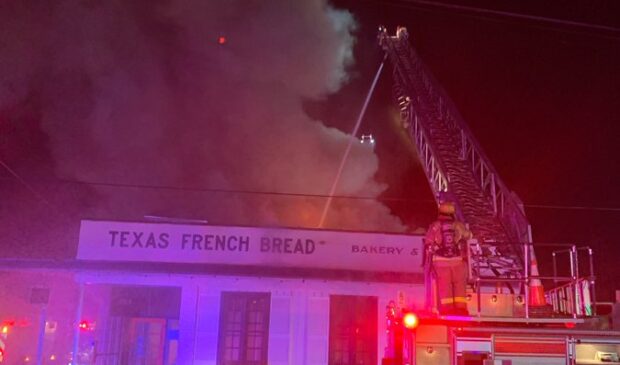Study eyes fire response steps to protect local waterways
Thursday, April 6, 2023 by
Chad Swiatecki Austin Fire Department’s efforts to control and extinguish structure fires have negligible negative impacts on local waterways, according to a recent study of firefighting incidents over an eight-month period.
The assessment conducted by the Watershed Protection Department looked at the actions and impacts involved in 84 fires AFD responded to from Feb. 23 to Oct. 28 last year. It found that roughly 20 percent of the fires produced runoff of water or foam used to combat fire that discharged into a nearby storm sewer or waterway, with only one of those incidents requiring a watershed protection responder to discharge dechlorination tablets at the scene. The vast majority of fires responded to by AFD produced “minimal” water impacts with water being absorbed into the ground.
oseThe eight-month analysis was conducted as part of the response to a City Council resolution passed last March that directed AFD to create a process to notify all relevant departments of firefighting activities that could have an impact on local waterways. That resolution was motivated in part by the aftereffects of the January 2022 fire that destroyed the Texas French Bread bakery on Rio Grande Street.
That fire, which took more than three hours to extinguish, resulted in one of the only two fish kills caused by fire response, with the other attributed to a restaurant fire in March 2009.
A memo released on Monday noted that AFD and WPD have historically worked together to notify and respond when there is a likelihood of waterways being impacted due to fire response, though the memo also said that road collisions are more likely to negatively affect waterways than firefighting activities.
The study of the 84 “working fires” was conducted because the city had limited recent data on the frequency of firefighting discharges. While the study was carried out, WPD sent staff to fire scenes to collect data and document any threats to local aquatic life.
While WPD is charged with enforcing federal, state and local water quality laws for Austin, it has no jurisdiction over the fire response activities that may impact waterways. Because of that, the study was conducted to determine how often the department is likely to have to intervene to address water quality issues, and how to best do so.
One of the main findings was that fire response presents “a relatively low risk of harm to aquatic life or other significantly adverse water quality impacts when compared to other types of acute discharge events (e.g., wastewater sewer overflows).”
Based on the data collected, it was determined that any decision to have WPD respond to all AFD scenes would result in a 20 percent increase in workload for the Spill Response team, which would create the need for additional staff and resources.
Instead, the departments have suggested a new response protocol for incidents that are likely to threaten water quality. The criteria for what could trigger a WPD response include estimated water use greater than 10,000 gallons (or over one-hour flow duration), significant runoff of foam used to suppress a fire, water from a fire hose known or suspected to discharge into a creek, or general uncertainty of whether a water quality response is needed.
The new protocol spells out the steps WPD will most likely take to prevent or mitigate water quality impacts, including physically diverting firefighting flows away from sensitive waterways and toward areas where the ground can soak up the water. The other primary tactic is use of dechlorinating the flows that contain residual chlorine that could harm aquatic life.
The Austin Monitor’s work is made possible by donations from the community. Though our reporting covers donors from time to time, we are careful to keep business and editorial efforts separate while maintaining transparency. A complete list of donors is available here, and our code of ethics is explained here.
You're a community leader
And we’re honored you look to us for serious, in-depth news. You know a strong community needs local and dedicated watchdog reporting. We’re here for you and that won’t change. Now will you take the powerful next step and support our nonprofit news organization?










